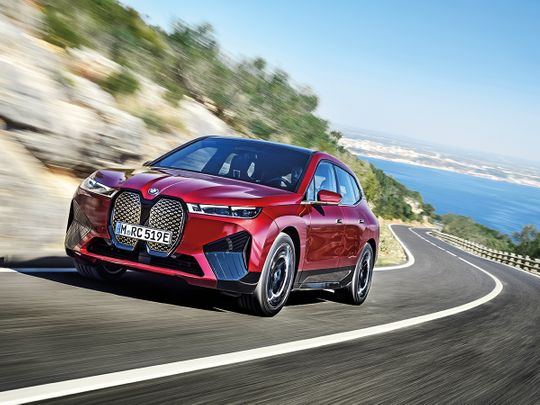
BMW AG beat longtime rival Mercedes-Benz to the luxury-car sales crown for the first time since 2015 after better navigating the semiconductor shortage that has snarled auto output globally.
Deliveries of BMW-branded cars jumped 9 per cent to a record 2.2 million last year, surpassing Mercedes’s about 2.1 million. Output of the Daimler AG-owned brand shrank 5 per cent after the lack of chips grew much worse during the second half.
“In 2022, we want to continue our profitable growth and we will systematically expand our range of fully electric vehicles,” Pieter Nota, responsible for sales at BMW, said in a statement on Wednesday.
BMW’s victory over Mercedes may partially be a sign of the component shortages skewing global car sales. Figures released last week showed Toyota Motor Corp. selling more vehicles in the US last year than General Motors Co., the first time any manufacturer has beaten the Detroit giant since 1931.
Deliveries of electric vehicles were a bright spot for both companies as they rolled out new battery-powered models and sought to comply with tightening emissions regulations.
At BMW, sales of plug-in hybrid and fully electric cars like the iX sedan jumped 70 per cent to 328,316 cars, compared to a 69 per cent increase at Mercedes. BMW more than doubled sales of full EVs last year and seeks to repeat that feat in 2022, Nota said.
BMW’s deliveries had been tracking ahead of the Daimler AG brand for much of this year even as it had to temporarily shutter factories during the summer months. BMW says its decision to ramp up chip orders despite the hit to sales from pandemic lockdowns in 2020 helped it keep factories supplied with the components this year.
Volkswagen AG’s Porsche said on Wednesday that sales increased 11 per cent to 301,915 vehicles in 2021, bolstered by high demand in the US and China, its largest market.
Mercedes last week said scarce supply of the components will continue to grip the industry during the first half of the year and urged more capacity to be added globally. BMW has also said it expects the squeeze to continue over the next six months.












